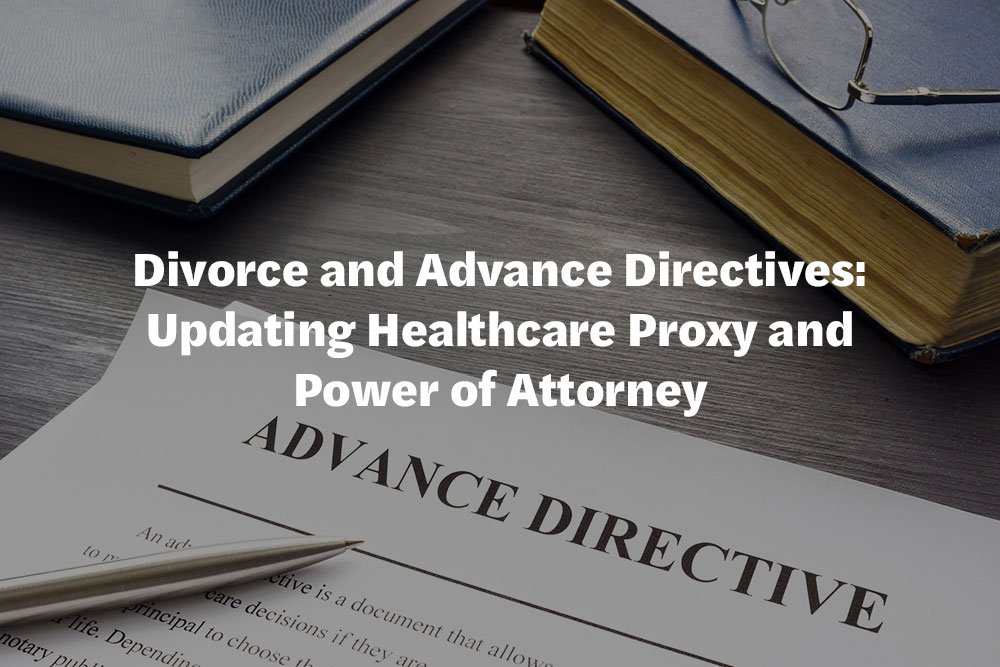Divorce is a significant life event that necessitates revisions to various legal documents, especially those pertaining to your personal care and financial management. Among these are your advance directives, including your healthcare proxy and durable power of attorney. Ensuring these documents are updated post-divorce is crucial to reflect your current circumstances and wishes accurately. Here’s what you need to know about updating these important documents after a divorce.
Understanding Advance Directives
Advance directives are legal documents that outline your preferences for medical care if you become unable to communicate your wishes. They also appoint someone to make decisions on your behalf. These include:
- Healthcare Proxy (or Durable Power of Attorney for Healthcare): This document names someone you trust to make medical decisions if you’re incapacitated. The appointed person, known as your healthcare proxy, should understand your healthcare preferences and be willing to advocate on your behalf.
- Durable Power of Attorney for Finances: This allows a designated individual to manage your financial affairs if you are unable to do so. It’s vital that this person is trustworthy and capable of handling your finances according to your instructions.
The Impact of Divorce on Advance Directives
During marriage, it’s common for spouses to name each other as their healthcare proxy and financial power of attorney. However, post-divorce, leaving an ex-spouse in charge of these critical areas can lead to complications and may not reflect your current preferences. This is why updating these documents as part of your post-divorce checklist is essential.
Steps to Update Your Advance Directives After Divorce
- Review Current Documents: Assess who is currently named in your advance directives. Understand the roles they are authorized to play and decide if changes are necessary based on your new circumstances.
- Select New Representatives: Choose a new healthcare proxy and power of attorney who align with your current trust circle—this might be a close family member, a trusted friend, or a professional advisor. Ensure that these individuals are willing and able to take on the responsibilities.
- Consult with an Estate Planning Attorney: Modifying legal documents should always be done under the guidance of a professional to ensure that all changes are legally sound and properly executed. An estate planning attorney can help you navigate the changes efficiently and correctly.
- Execute the New Documents: Once your new advance directives are prepared, sign them in accordance with state laws, which may require witnesses or notarization. This formalizes the changes.
- Communicate Changes: Inform your healthcare providers, family members, and anyone else who might be affected by these changes. Provide copies of the new directives to appropriate parties to ensure that everyone is aware of the updates.
- Dispose of Old Documents: Safely dispose of copies of your old advance directives to avoid confusion and ensure that your new documents are the only ones recognized by healthcare providers and financial institutions.
Updating your advance directives following a divorce is a critical step in maintaining control over your personal and financial affairs. At Allenby Law in San Diego, we specialize in estate planning and can help you revise and execute these important documents to reflect your current wishes. Contact us today to ensure your healthcare and financial decisions remain in trusted hands as you move forward into your new life chapter.



